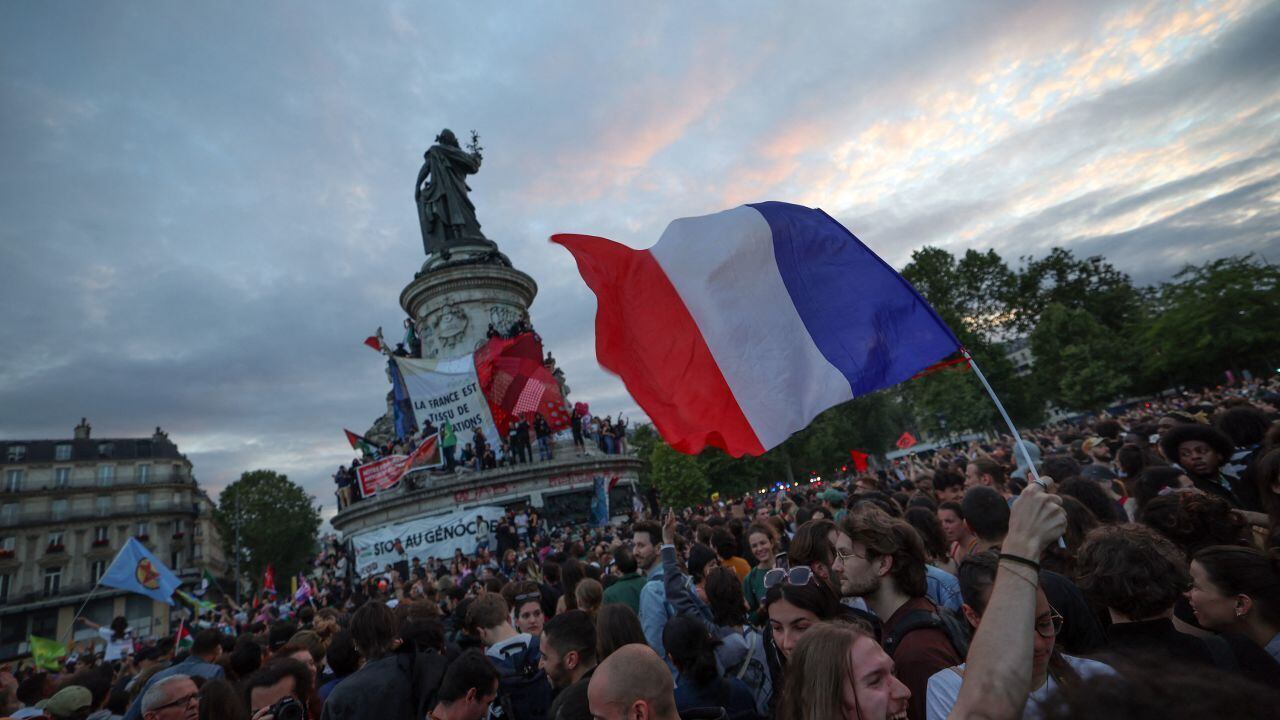
The coalition of left New Popular Front (NFP) gave the surprise on Sunday by winning the elections legislative in France, but far from an absolute majority in an Assembly (lower house) with a strengthened right. Will he be able to govern?
The NFP’s various tendencies – socialists, ecologists, communists and radical left – together won some 193 of the 577 seats, followed by President Emmanuel Macron’s centre-right alliance with at least 160.
Pending the final composition of the groups in the coming days, the right-wing party The Republicans (LR) won about 60 seats and the far-right National Rally (RN) and its allies 143.
“I do not question the possibility of the left governing or participating in a government. But 100 seats short of an absolute majority (…), we have to be realistic,” said French Foreign Minister Stéphané Séjourné in the daily Le Monde.
The NPF leaders have expressed their desire to form their own government, but with parliamentary support, which is difficult when the other forces oscillate between the centre-right and the extreme right.
“We will be open” to the “left-wing macronists” that could be identified “with the foundations of the NFP”whose program should serve as “compass”, said Socialist negotiator Johanna Rolland.
But within a coalition with various sensitivities, Manuel Bompard, representative of the radical wing, was less conciliatory, assuring that it would be up to the rest of the groups to decide whether to vote for his proposals or the “overthrow”.
The impossible prime minister
The left-wing Nupes coalition, which was running in the 2022 legislative elections, ended up breaking up due to disagreements between Bompard’s La France Insoumise (LFI) and the most social-democratic wing of the Socialist Party.
But fearing that Marine Le Pen’s far-right would come to power, they resolved their differences in record time following the unexpected early election decreed by Macron.
The elections also brought about a new balance of power in the coalition, in which LFI remains the main component, with around 80 deputies, but closely followed by the socialists, with around 70.
The negotiation of the name of the future prime minister shows the persistent complexity. For the green leader Marine Tondelier, it must be a person aligned with the NFP programme, a consensus-based person, who will calm the country and with experience.
LFI believes that, as the leading force, it is their responsibility to appoint him and has not ruled out its controversial leader Jean-Luc Mélenchon, despite the rejection he generates in other forces.
Another LFI name to emerge is MP Clémence Guetté, less well-known but popular among left-wing activists. At 33, she offers a less divisive and calmer image.
“There can be no claim to hegemony on the part of anyone”warned the socialist leader, Olivier Faure, who said “willing to take on“as prime minister if his partners accept him.
Official “alternative”
Left-wing leaders on Monday urged Macron to ask them for a name for prime minister, which they hope to have this week, but the president, who will participate in a NATO summit in Washington on Wednesday and Thursday, decided to steer the current one, Gabriel Attal, away from the post. “for now”.
In the midst of political limbo, the ruling alliance is also moving its pawns to try to form a “alternative” to a left-wing government, trying to attract the right and even the socialists.
The ruling party and LR together would have more seats than the NFP, but the right-wing party prefers to maintain its independence and rebuild itself for now, after imploding during the elections when one part made a pact with the far right.
Some of the NFP’s proposals, which the coalition says it can approve by decree, also represent red lines for the ruling alliance and the right, such as the repeal of Macron’s pension reform or the increase in the minimum wage.
If the left manages to form a government without other partners, it could fall to a vote of no confidence in the Assembly. And Macron cannot call new early elections until July 2025.
It may interest you
- Leftist coalition leads in French elections, but without absolute majority
- Political deadlock in France, a lesser evil that gives the market a respite
- France: Raising the retirement age puts tensions on parliamentary elections
Source: Gestion
Ricardo is a renowned author and journalist, known for his exceptional writing on top-news stories. He currently works as a writer at the 247 News Agency, where he is known for his ability to deliver breaking news and insightful analysis on the most pressing issues of the day.











